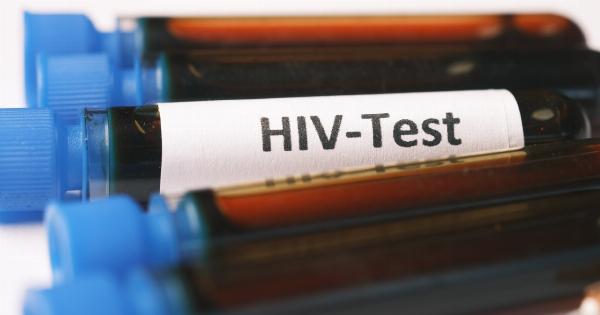For decades, HIV has been a global health crisis, affecting millions of people worldwide. However, amidst the darkness, there have been significant advancements and positive news in the fight against this devastating virus.
From groundbreaking research to innovative prevention strategies, here are ten positive developments shedding light on the progress made in combating HIV.
1. The Promising Rise of Antiretroviral Therapy (ART)
Antiretroviral therapy has revolutionized the treatment and management of HIV. These medications inhibit the replication and progression of the virus, allowing people living with HIV to lead longer, healthier lives.
Furthermore, recent studies have shown that early initiation of ART not only benefits the individual but also reduces the risk of transmitting the virus to sexual partners.
2. The Power of PrEP: Pre-Exposure Prophylaxis
Pre-exposure prophylaxis, commonly known as PrEP, is a game-changer in HIV prevention. It involves the use of antiretroviral drugs by individuals who are HIV-negative but at high risk of contracting the virus.
Clinical trials have demonstrated that regular use of PrEP significantly reduces the chances of HIV transmission.
3. Elimination of Mother-to-Child Transmission
Thanks to advancements in medical interventions and antiretroviral medications, the transmission of HIV from mothers to their infants can be prevented.
With proper prenatal care, monitoring, and timely administration of antiretroviral drugs, the risk of mother-to-child transmission can be reduced to less than 1%.
4. The Impact of HIV Self-Testing
HIV self-testing has emerged as an effective tool in increasing awareness and early detection. Through self-testing kits, individuals can discreetly test themselves for HIV in the privacy of their homes.
This approach not only reduces the stigma associated with testing but also encourages individuals to take control of their health.
5. The Pursuit of an HIV Vaccine
Scientists and researchers worldwide are tirelessly working towards developing an HIV vaccine. Although the road to finding an effective vaccine has been challenging, advancements in vaccine technology have led to promising results.
Initiatives such as the recently launched HIV Vaccine Trials Network bring us closer to the day when a preventive vaccine may become a reality.
6. Combating Stigma and Discrimination
Efforts to combat the stigma and discrimination associated with HIV are gaining momentum. Through awareness campaigns, educational programs, and policy changes, society is gradually shifting towards a more compassionate and inclusive approach.
Eradicating the stigma surrounding HIV is crucial to encouraging people to get tested, access treatment, and support those living with the virus without fear of judgment.
7. The Role of Community-Based Healthcare
Community-based healthcare models have proven to be effective in reaching marginalized populations and reducing HIV transmission rates.
By bringing prevention and treatment services closer to communities, particularly those facing socio-economic barriers, these programs prioritize accessibility and ensure that no individual is left behind in the fight against HIV.
8. Breakthroughs in HIV-Related Research
Multiple breakthroughs in HIV-related research have brought us closer to a cure or long-term remission.
From understanding the mechanisms of viral persistence to exploring gene-editing technologies like CRISPR/Cas9, research efforts are illuminating new paths in the pursuit of eradicating HIV from the body.
9. Mobilizing Resources for Prevention and Treatment
Global efforts to mobilize resources for HIV prevention and treatment have witnessed remarkable progress.
Organizations such as the Global Fund to Fight AIDS, Tuberculosis and Malaria, and the President’s Emergency Plan for AIDS Relief (PEPFAR) have made substantial investments to expand access to quality healthcare services, antiretroviral drugs, and prevention initiatives.
10. Empowering and Amplifying the Voices of People Living with HIV
Involving people living with HIV in decision-making processes is crucial in shaping effective policies and programs.
Advocacy and support networks have provided a platform for those affected by the virus to share their stories, address challenges, and demand better healthcare services. Empowering these voices ensures that their experiences inform the fight against HIV at every level.
Conclusion: Progress on the Horizon
While the battle against HIV is far from over, the positive news and advancements in prevention, treatment, and research provide a ray of hope.
With continued investments, collaborative efforts, and a proactive global response, the goal of ending the HIV epidemic is becoming increasingly attainable. By harnessing the power of medical advancements, community engagement, and compassion, we can strive towards a future free from the grip of HIV.




























